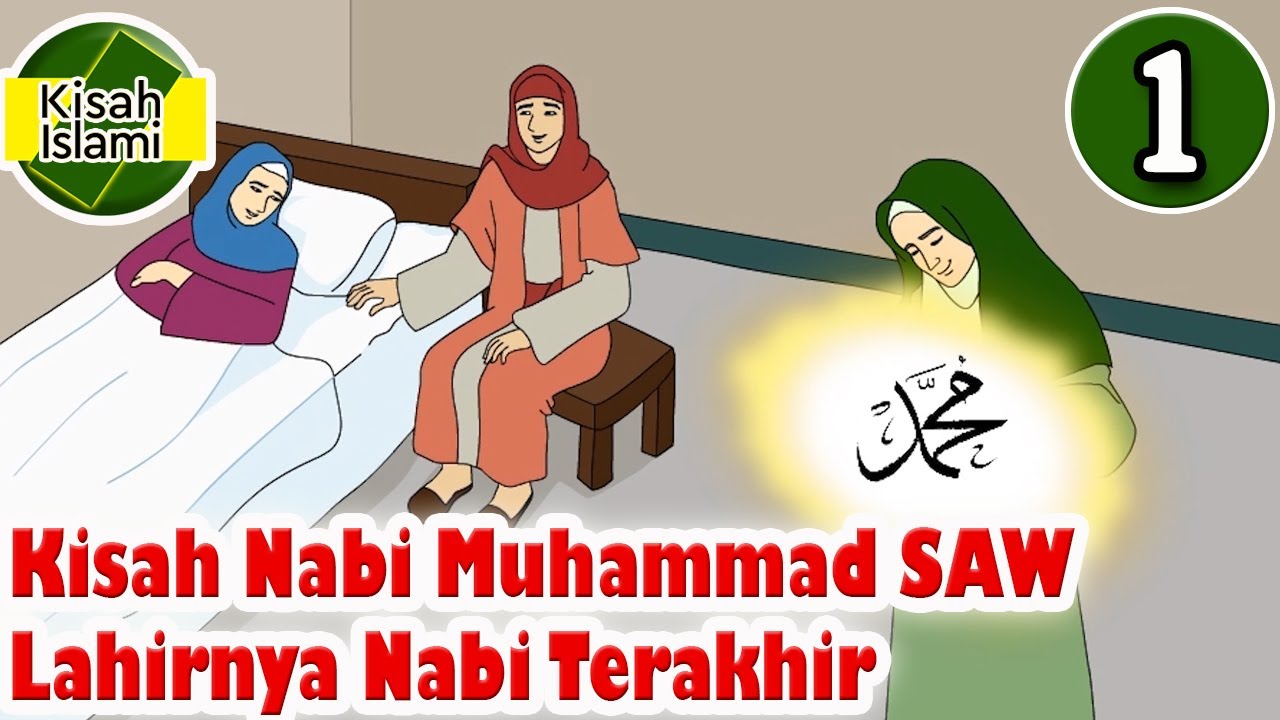Hazrat Muhammad ﷺ ki wiladat ka waqia | Birth story of Prophet Muhammad ﷺ | Amber Voice Urdu Hindi
Summary
TLDRThe transcript narrates the birth of Prophet Muhammad, a transformative moment in history. It describes the dark times of ignorance, with widespread cruelty and oppression, before his birth brought enlightenment. The script details miraculous signs, such as the stars coming close, the extinguishing of the fire temple in Persia, and the fall of idols, marking the dawn of a new era of peace and justice. It also recounts personal experiences of those who witnessed these events, emphasizing the profound impact of the Prophet's birth on society.
Takeaways
- 🕌 The script talks about the blessed names and the significance of various Islamic figures and terms.
- 🌎 It describes a period of darkness and injustice in the world before the arrival of a new era of prosperity and justice.
- 👶 The birth of Muhammad (Peace be upon him) is highlighted as a turning point, bringing light and guidance to humanity.
- 📚 References are made to both historical and religious texts, indicating the anticipation and confirmation of the Prophet's arrival.
- 🌟 The script mentions celestial events and natural phenomena that coincided with the birth of the Prophet, symbolizing divine intervention.
- 🌌 It speaks of the reactions of the people, including awe and the sense of a new beginning, upon the birth of the Prophet.
- 🏺 The script also mentions the transformation of the society under the guidance of the Prophet, moving from ignorance to enlightenment.
- 🌈 There are descriptions of miracles and signs that accompanied the birth and the early life of the Prophet, emphasizing his divine mission.
- 📖 The script includes accounts from companions and family members of the Prophet, providing personal insights into his life and character.
- 🌟 The script concludes with the impact of the Prophet's life and teachings, which continue to inspire and guide people to this day.
Q & A
What is the significance of the name 'Shafi' mentioned in the script?
-The name 'Shafi' could be referring to a revered figure or a title within the context of the script, often associated with Islamic tradition. It might be a name of a person or a title given to someone of importance.
What does 'Ul-Lah' signify in the script?
-'Ul-Lah' is likely a reference to 'God' in Arabic, indicating a religious context within the script.
What is the importance of the term 'Karbala' in the script?
-Karbala is a city in Iraq and holds significant importance in Islamic history, particularly for Shia Muslims as the site of the Battle of Karbala where Hussain ibn Ali, the grandson of Muhammad, was martyred.
What is the meaning of 'Sila' in the context of the script?
-The term 'Sila' could refer to 'connection' or 'relationship' in Arabic. In the context of the script, it might be used to describe the bond between individuals or communities.
Why does the script mention 'Rahmatul Alameen'?
-Rahmatul Alameen is an Arabic phrase often used to refer to the Prophet Muhammad, meaning 'Mercy for all the Worlds'. It is a title of respect and reverence.
What is the significance of 'Viladat' in the script?
-Viladat refers to the birth or birthplace. In the context of the script, it likely refers to the birth of a significant figure, possibly the Prophet Muhammad, which is a pivotal event in Islamic history.
What is the script referring to when it mentions 'Kufr' and 'Jahalat'?
-'Kufr' refers to disbelief or rejection of the divine, and 'Jahalat' refers to the state of ignorance. The script seems to be describing a period of time when these conditions were prevalent.
What is the script's reference to 'Shikam'?
-Shikam could be a term referring to a state of being struck or afflicted, possibly indicating a period of hardship or suffering.
What is the significance of the mention of 'Saiyada Aamna' in the script?
-Saiyada Aamna, also known as Khadijah, is the first wife of the Prophet Muhammad and a significant figure in Islamic history. The script seems to be narrating events or visions related to her.
Why does the script mention 'Yashar' or 'Medina'?
-Yashar or Medina is the second-holiest city in Islam after Mecca. The script might be referring to events or revelations that took place there.
What does the script mean by 'Huzoor's birth'?
-Huzoor is a term of respect used in Islamic tradition to refer to the Prophet Muhammad. The script is discussing the circumstances surrounding his birth, which is considered a blessed and significant event.
Outlines

Cette section est réservée aux utilisateurs payants. Améliorez votre compte pour accéder à cette section.
Améliorer maintenantMindmap

Cette section est réservée aux utilisateurs payants. Améliorez votre compte pour accéder à cette section.
Améliorer maintenantKeywords

Cette section est réservée aux utilisateurs payants. Améliorez votre compte pour accéder à cette section.
Améliorer maintenantHighlights

Cette section est réservée aux utilisateurs payants. Améliorez votre compte pour accéder à cette section.
Améliorer maintenantTranscripts

Cette section est réservée aux utilisateurs payants. Améliorez votre compte pour accéder à cette section.
Améliorer maintenantVoir Plus de Vidéos Connexes

KISAH TELADAN NABI MUHAMMAD SAW

Nabi Muhammad SAW Part 1 - Lahirnya Nabi Terakhir - Kisah Islami Channel

Detik Detik Lahirnya Nabi Muhammad SAW dan Peristiwa Menakjubkan di Dalamnya❗| Cerita Hikmah

Khutbah Jumat Yang Dibawakan Oleh Almukarram Ustad Bambang Sampurno, S.Pd.I., M.A

Prophet Enter Madina | Muhammad Story Ep 18 || Prophet stories for kids : iqra cartoon Islamic

FILM MUHAMMAD AL-FATIH SANG PENAKLUK KONSTANTINOPEL - Cerita Alur Film
5.0 / 5 (0 votes)
